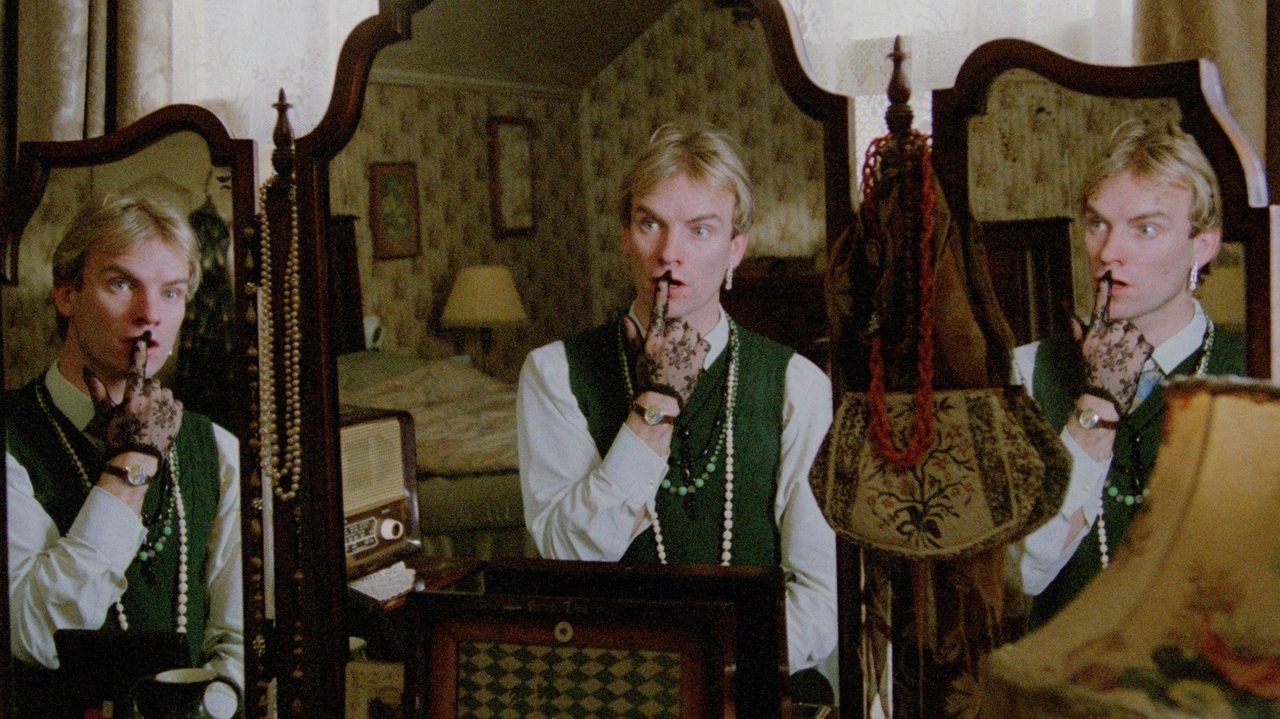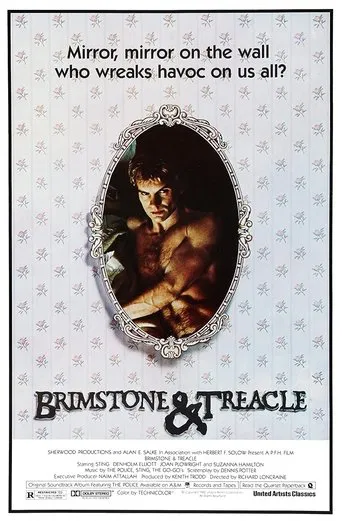

This film was never around much at the time of it's release dispite some good word of mouth. It is pretty well brought off in every way, but leaves one feeling one has seen a rather more obvious version of Pinter with then trendy rock and an even more pronouced lack of point. Sting holds his own surprisingly well with his classy co-stars.. It's Potter's heavy handed irony, admittedly popular, that just tires you out.
... View MorePolite, mannered drifter Martin Taylor (Sting) charms his way into the home of Thomas Bates (Denholm Elliott), an outwardly upright publisher of religious text, his simple-minded, devout wife Norma (Joan Plowright) and their catatonic daughter Patricia (Suzanna Hamilton), whom he claims to know. Martin is allowed to stay in the home for a couple of days, cooks, cleans, "cares" for the daughter and tries to help the couple through their marital problems, but he's also the catalyst that forces some dark secrets out of the family closet.Sting's character will either annoy or fascinate you as he exists solely as an enigma, representing angel or demon, or possibly both. Originally a play, this film never quite escapes the stage, but that only feeds into the claustrophobia of the stuffy household and guilt-ridden, lonely characters who inhabit it, and, all in all, it's an intriguing allegory on the nature of good and evil that has a lot to offer, including potent religious imagery, a knockout nightmare/fantasy sequence and a good score (plus songs by The Police) all driven home by excellent performances by the three leads and assured direction by Richard Loncraine.Dennis Potter's script was previously filmed in 1976 for BBC (that version also starred the great Denholm Elliott).
... View MoreDepending on your point of view, this is either an incredibly sick film or a classic piece of Filme Noire.Basically, Sting is a strange, disturbed young man who at least believes himself to be the devil incarnate. He inveigles his way into the house of a middle-aged couple and their brain damaged daughter, persuades them to let him "babysit" and then rapes the comatose girl while they are out.The characterisation is fairly well handled, as is the psychological aspect, but you can't help thinking that Dennis Potter was feeling rather more controversial than normal when he wrote it and that the director was exploiting the situation to get away with gratuitous, sadistic sex scenes masquerading as art.Ultimately, this is a very disturbing film, but is at least head and shoulders above the "made for TV" play released a few years earlier.The music on the other hand - by Sting himself (both solo and with The Police) - is much better fare. Simple production and a strange mix of styles, but at times it really captures the macabre mood down to a tee.
... View MoreThe film is re-make of a television play which the BBC chose not to transmit because of its controversial subject matter, in particular the final sequence of rape. This version which received a cinema release, appeared 6 years later, and included one member of the original cast, Denholm Elliot.The central role of Martin was re-cast with Sting (then lead singer with The Police) who also provided music material, including his first solo single Spread A Little Happiness. (Michael Nyman also provided soundtrack material.)The script remains largely faithful to the original screenplay, though several minutes of discourse in one of the final scenes is excised completely. This is a discussion of racism which provokes Mr Bates to retract from his outspoken racist views.The original TV play is set mostly within the confines of a living room, while thebigger-budget movie is less restricted, and has a Gothic, sinister atmosphere. References to Martin's diabolical nature are more subtle too the TV play shows Martin with hairy, clawed feet. The closing scene of the film suggests that Martin may have been caught out (by an angel or devil?), while the TV play implies that his actions within the Bates household are just one of many continuing abuses on a never-ending cycle.
... View More